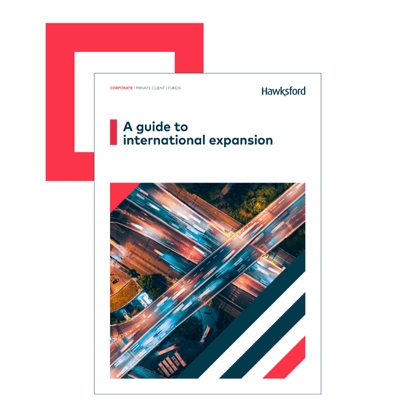Exploring Singapore's approach to Muslim succession
Singapore enjoys a rich and diverse cultural heritage, with a vibrant and well represented Muslim population. This is reflected in Singapore’s laws, which, although based on the English common law, enshrine Muslim principles also. Perhaps no area of law is more reflective of this than that of succession law.
In Singapore there is a dual system of inheritance law. Whilst under common law, there is freedom of testamentary disposition, prescribed by the Wills Act (Cap 352), under the Administration of Muslim Law Act (Cap. 3) (AMLA) a Muslim deceased’s estate shall be distributed in accordance with the principles of Muslim law and (where applicable) Malay custom. This in turn reflects Faraid laws, which prescribe the manner and order of distribution of the assets of a deceased Muslim. The principles of Faraid are extracted from the Holy Quran and the majority opinion of Islamic scholars which generally set out fixed rules, based on the relations who survive the deceased Muslim, the relatives who should inherit and the proportion of their inheritance.
In the common law tradition, the compulsory heirs requirements contained in AMLA are known as ‘forced heirship’ provisions.
Generally, a Muslim domiciled in Singapore can only give away up to one third of his estate by his will, and only to persons who are not related to him by blood (such as one’s parents, spouses, siblings and children) and who are Muslims. The exception to this rule is where all his eligible Faraid beneficiaries’ consent to the Muslim dealing with more than one third of his estate in his will.
Many Muslims query the need for a Will at all; however Section 111 of AMLA permits a Muslim to make a Will to dispose of his or her assets upon his or her death, and although the Will must comply with the conditions of and is subject to the restrictions imposed by, the school of Muslim law professed by him or her, there is usually one third of the deceased estate that can be freely distributed and this may include to a person who has renounced the Muslim faith.
Muslims often wish to set up family trusts, for common reasons such as asset protection, tax planning, business purposes, and succession planning. This raises this question whether it is possible for a Muslim to set aside assets into trust and whether the provisions of that trust can contradict Faraid. This has been litigated in Singapore, with the Court of Appeal in Shafeeg bin Salim Talbin v Fatimah bte Abud bin Talib [2010] SGCA 11 finding that it is possible for a Muslim to settle a trust that then would be upheld as a valid settlement. If the settlement of a Muslim’s assets into a trust were completed during the deceased’s lifetime, such assets will be treated as trust assets and not part of the estate of the Muslim deceased, and therefore not subject to Islamic inheritance laws.
It should be noted that there are also 5 other types of assets of a deceased Muslim which are excluded from distribution in accordance with Faraid, one of which is property held by a deceased Muslim in a joint tenancy with another person or with other persons will pass to the surviving joint tenant or tenants.
Finally, it should be noted that Singapore’s trust law has ‘firewall’ provisions in relation to the establishment of trusts in Singapore. Section 90(2) of the Trustees Act provides that no rule relating to inheritance or succession affects the validity of a trust or the transfer of any property to be held in trust if the person creating the trust or transferring the property had the capacity to do so under the law applicable in Singapore, the law of his domicile or nationality, or the proper law of the transfer. This is particularly useful for those Muslim’s not domiciled in Singapore who wish to use Singapore for asset protection and succession planning.
Disclaimer:
This article is intended for general information only and is not intended to apply to any specific situations or to constitute legal advice.

Updated on



